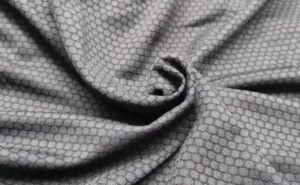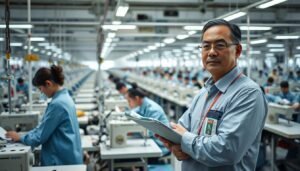In the fast-paced world of garment manufacturing, the stakes are high, and the choices we make can either propel us to new heights or set us back significantly. As the owner of a garment manufacturing factory in China, I have witnessed firsthand the profound impact that choosing the right supplier can have on a business. It’s not just about securing the best deal—it’s about ensuring the quality, reliability, and integrity of the products that ultimately define your brand.
This article is born out of my years of experience navigating the complex landscape of the garment industry. I’ve seen the triumphs and challenges, the seamless productions and the unexpected hurdles. My goal is to share this knowledge with you, to arm you with the insights needed to make the best possible decisions for your business. The difference between working with a garment factory and a garment trading company can be stark, and understanding these distinctions can mean the difference between success and failure.
1. Definition and Structure
Garment Factory
A garment factory is a manufacturing entity where clothing is produced. These facilities handle the entire production process, from sourcing raw materials to cutting, sewing, and finishing garments. They typically have a direct control over the production line, ensuring quality standards and production timelines are met.
Garment Trading Company
A garment trading company acts as an intermediary between the buyer and the manufacturer. They do not produce garments themselves but source them from various factories. These companies focus on finding the best suppliers, negotiating prices, and ensuring the products meet the buyer’s requirements.
2. Production Control and Quality Assurance
| Aspect | Garment Factory | Garment Trading Company |
| Production Control | Direct control over production processes | Relies on third-party manufacturers |
| Quality Assurance | In-house quality control teams | Dependent on factory quality standards |
Garment factories have direct oversight of their production lines, enabling them to implement stringent quality control measures. This direct control ensures consistency and reliability in product quality. On the other hand, garment trading companies rely on their network of factories for production, which can lead to variability in quality if not managed carefully.
3. Cost Efficiency
| Aspect | Garment Factory | Garment Trading Company |
| Cost Structure | Lower costs due to direct manufacturing | Higher costs due to middleman fees |
| Pricing Flexibility | More flexible in pricing | Fixed margins and less price flexibility |
Garment factories generally offer more competitive pricing as they eliminate the middleman. Their direct involvement in the manufacturing process allows them to manage costs more efficiently, providing better value for bulk orders. Trading companies, however, add a layer of cost due to their intermediary role, which can lead to higher prices for the end buyer.
4. Customization and Flexibility
| Aspect | Garment Factory | Garment Trading Company |
| Customization | High level of customization | Limited by supplier capabilities |
| Order Flexibility | More flexible with order changes | Dependent on third-party schedules |
Factories are often more capable of offering customization, as they have direct control over the production process. This includes specific design changes, unique fabric requirements, and custom labels. Trading companies, while they can offer some degree of customization, are limited by the capabilities and willingness of the factories they work with.
5. Lead Times and Supply Chain Management
| Aspect | Garment Factory | Garment Trading Company |
| Lead Times | Generally shorter, more predictable | Potentially longer, variable |
| Supply Chain Management | Direct management of supply chain | Relies on multiple external suppliers |
Factories usually offer shorter and more predictable lead times as they control the entire production process. Trading companies may experience delays due to reliance on multiple suppliers, potentially leading to longer lead times and less predictability in delivery schedules.
6. Relationship and Communication
| Aspect | Garment Factory | Garment Trading Company |
| Direct Communication | Direct communication with manufacturers | Indirect communication through agents |
| Relationship Building | Stronger, direct relationships | Weaker, mediated relationships |
Working directly with a garment factory allows for clearer communication and a stronger relationship. This can lead to better understanding of your needs and more efficient problem resolution. Trading companies, acting as intermediaries, may complicate communication and dilute the relationship with the actual producers.
Conclusion
Choosing between a garment factory and a garment trading company depends on your specific needs and priorities. If direct control, cost efficiency, and customization are critical, partnering with a garment factory may be the better option. Conversely, if you prefer to leverage an intermediary’s expertise in sourcing and supplier management, a trading company might be more suitable.
By understanding these differences, you can make a more informed decision, ensuring that your chosen supplier aligns with your business goals and operational requirements. Making the right choice will not only enhance the quality and reliability of your products but also contribute to a more efficient and effective supply chai







